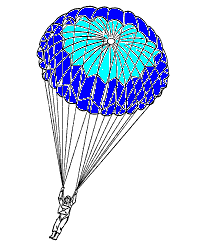A postmortem of my career as a librarian, Part 3.

Technical problems and intermittent writer’s block delayed this article. My goal for the year was to push out one article per week, and only two months in I’m already a month behind. This doesn’t bode well.
In addition to getting this collective bile out of my system, I’m also writing these experiences in the hope that I can help others who are in, or have been in, similar situations. My circumstances are certainly different from those of anyone reading this, but career problems have become commonplace. Perhaps reading about how another person handled their particular mess can be of help to the reader. If nothing else, the reader can take some solace in knowing that they aren’t alone.
When I left the Library of Congress in March of 2017, I was well and truly adrift. I didn’t have any real confidence in myself, and even less in my professional skill set. But even so I buckled down and embarked on the dreaded job hunt.
I used a lot of the traditional routes, such as trade publications, newspapers, and online classified sites. But I also used some of the more recent tricks, like networking and searching for volunteer opportunities. I set up an account on LinkedIn to re-connect with my professional contacts, more to see what they could suggest for a current job seeker. I actually found that a bit uncomfortable, because several of my contacts went to bat for me in the past, and now here I was with my career pretty much dead. They must have wondered why I was in this mess. Again.
For the first several weeks I was getting good results. I had several interviews, both in person and via telephone, so I was confident that one of my prospects would pan out. That confidence didn’t last long. By early summer I realized that my career prospects were very bleak. For starters I was encountering ageism. Honestly that shouldn’t have surprised me. I was largely restricted to middle and low level librarian positions, which meant that I was directly competing with younger graduates who were new to the profession. These were the same kind of people I used to run with back in the mid-1990’s. My skill set had atrophied to the point where I couldn’t compete with this new crew.
My skill set was another problem. Specifically, it was no longer useful. I fell into a rather common trap of career management, in that I didn’t update or even maintain some of my key skills. Arguably I had a good reason, in that I was too busy just staying afloat to worry about keeping myself current. But the end result was the same: I was professionally obsolete.
In late August I set myself up with a temp agency, in the hope of getting a temporary position at one of the local companies. I was going to have to think long and hard about what I was going to do next, because it was clear that the library field was done with me. The temp agency set me up with a local textile company, which would provide some income while I figured out what to do next. My first decision was to stop searching for a professional library job, and to stop following up on the leads I did have.
I found I needed to start over, from the very beginning. I could have tried getting some new training by returning to school. The problem with that was that my mental health problems would make any such training very time consuming because I have so much trouble focusing. Another problem was cost. The money it would require for me to return to school, even short trade classes, would be better spent on my daughter’s education than on trying to rehabilitate a worn out old guy like me.
I looked into other options, but nothing seemed right for me. Somewhere in mid fall I was mulling through my options, such as they were, and discussing them with Lisa. I was, by this time, completely demoralized and frustrated. I had two possible new career paths that I could attempt, but couldn’t decide. Lisa asked me “which do you want to do?” Surprisingly, I responded with “I don’t want to do either one, but I need to choose.” I then stopped and took a deep breath, having realized my large Freudian-style slip.
I then turned to the latest edition of Richard Nelson Bolles‘s famous book “What Color is your Parachute?” and started working through the various exercises that are designed to help you think through some of the huge decisions that career planning tends to generate. The exercises are very good, by the way, even if your aren’t job hunting. They make for good thinking aids, and demonstrate many innovative ways to approach and solve problems. I highly recommend the book for anyone who is facing difficult decisions of a non-emotional nature.
Despite the book’s benefits, I didn’t feel I was getting any closer to finding a new path. One day, something strange happened. There is a section of the book that talks about how to negotiate salaries and benefits. One thing Bolles recommends is figuring out what kind of a budget you can comfortably live on, so that you have a base line to start with. When it comes to salaries, more isn’t always better. (My salary at the Library was pretty good, but the work situation was so toxic that the money almost didn’t matter.) He points out that you should take into account not only your day to day living expenses, but if possible, how you like to spend your free time. I guess it’s the idea of not only making a living, but being able to actually live. He then mentioned, almost in passing, that you may discover that your actual salary requirement is fairly low, if it meets your requirements and allows you to enjoy your free time as you please.
I stopped reading the book at that point. In a state of absolute bewilderment, I realized that my free time mattered more to me than my work time, and that I didn’t care what I was doing for a living. So long as I could spend time with my family and pursue my hobbies and interests, my job didn’t matter. I was, apparently, a complete burn out, and no longer wanted a career. The career I had was well and truly dead, with nothing left to salvage. And I didn’t have any interest in building a new one.
The one big variable I still had in play was my application for disability through the Federal Employee Retirement System. If I was approved for disability, those benefits combined with my job at the textile plant would be sufficient. It would be tight at times, but we could still manage. What was most important to me was that I could turn my back on the professional world, perhaps forever. So for a couple of months I simply waited. In February of 2018 I received word that I had been approved for disability, and that my new benefits would start the following month. As fate would have it, the textile plant informed me that once a hiring freeze was lifted, hopefully some time in April, they wanted to hire me on as a regular employee. In April they did precisely that, and that was the end. I guess my final career decision was to stop having one.
I’ve been collecting disability since that time, and will continue to do so until I turn 62. That’s when the rules change a bit, and so do the benefits. I’ll deal with that when the time comes. I still work for that textile company, Cintas. The job is very simple, and certainly doesn’t require a master’s degree, so it gets on my nerves from time to time. But unlike my job at the Library, it doesn’t follow me home. A decent meal, shower, and a good night’s sleep is usually all I need to shrug off the worst of days. Sometimes I look back and think about returning to the professional world, but then I remember how during my last months at the Library I often wished to be somewhere, anywhere else. Yeah, I really am a burned out… something.
But, I was supporting my family again, on are far more modest level. I have to say that collectively I’m now a more content, if much poorer man. And I can honestly say that I would rather keep working my blue-collar job at Cintas than return to a job like my white-collar one at the Library of Congress.
So to answer Bolles’s question, my parachute turned out to be blue.

Glad to hear you found a job and that is enough. Careers are overrated for many. Having enough money coming in to live on and support your hobbies is often the best option. Life is too short to try and force things that aren’t working to work. *hugs to you all*